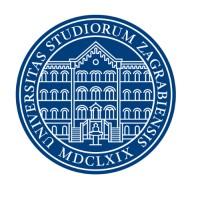-1.png)

Dimitri Krainc, MD, Ph.D. currently serves as the Aaron Montgomery Ward Professor and Chairman of the Department of Neurology and Director of the Center for Neurogenetics at Northwestern University, Feinberg School of Medicine in Chicago. Previously, Dr. Krainc spent more than 20 years at Harvard Medical School where he completed his research training followed by a neurology residency and fellowship in movement disorders at Massachusetts General Hospital. He then served on the neurology faculty at MGH and Harvard Medical School until 2013 when he relocated to Chicago.
The overarching goal of his laboratory has been to define key molecular pathways in the pathogenesis of neurodegeneration, focusing on rare genetic diseases, in particular those with mutations in genes that play a role in these common pathogenic pathways (e.g. PINK1, Parkin, ATP13A2, Gaucher) with a goal of identifying specific targets for therapeutic development in neurodegeneration. His work provided a mechanistic explanation for the link between Parkinson’s disease and Gaucher’s disease which is caused by mutations in the GBA1 gene that codes for glucocerebrosidase or GCase (Cell, 2011). In this work, they discovered a bidirectional feedback loop of a-synuclein and GCase that, after a threshold, leads to self-propagating disease. This study was also the first to demonstrate that wild-type GCase activity was decreased in idiopathic PD, a finding that was later confirmed by several other groups.
His work in iPS-derived neurons was extended to patients with other genetic and sporadic forms of PD, and compared to corresponding mouse models of PD where they identified a time-dependent pathological cascade of mitochondrial and lysosomal dysfunction. Importantly, they found that the convergence of these pathogenic phenotypes in various forms of PD was mediated by dopamine oxidation that was detected only in human neurons, whereas it was absent in mouse dopaminergic neurons (Science, 2017). Since dopamine oxidation leads to the formation of neuromelanin, these findings also explained why neuromelanin is not normally found in mouse midbrain dopaminergic neurons. Moreover, these findings highlighted the importance of studying mechanisms of PD in patient-derived neurons and at least in part explained why animal models of genetic forms of PD do not exhibit degeneration of dopaminergic neurons that is observed in PD patients.
Based on these findings, they developed targeted therapeutic approaches in human neurons that partially ameliorated pathogenic phenotypes in dopaminergic neurons in patients with multiple genetic and sporadic forms of PD (Science Translational Medicine, 2019). Together, these results provided a new framework for the development of targeted therapies for PD that are based on a detailed mechanistic understanding of disease in relevant human neurons.
More recently, his group identified the formation of direct mitochondria-lysosome membrane contacts that mark sites for lysosomal regulation of mitochondrial networks, while conversely, mitochondrial contacts regulate lysosomal dynamics providing a new angle to studies of these organelles in neurodegenerative diseases including PD (Wong et al, Nature, 2018).
His work is currently funded by the Javits Award, as well as the outstanding investigator award (R35) from NIH. Dr. Krainc is the principal founder of two biotech companies focused on the therapeutic development for neurodegenerative diseases, and he also serves as Venture Partner at OrbiMed in NYC.
To learn more about Dimitri Krainc, please visit https://dimitrikrainc.com

